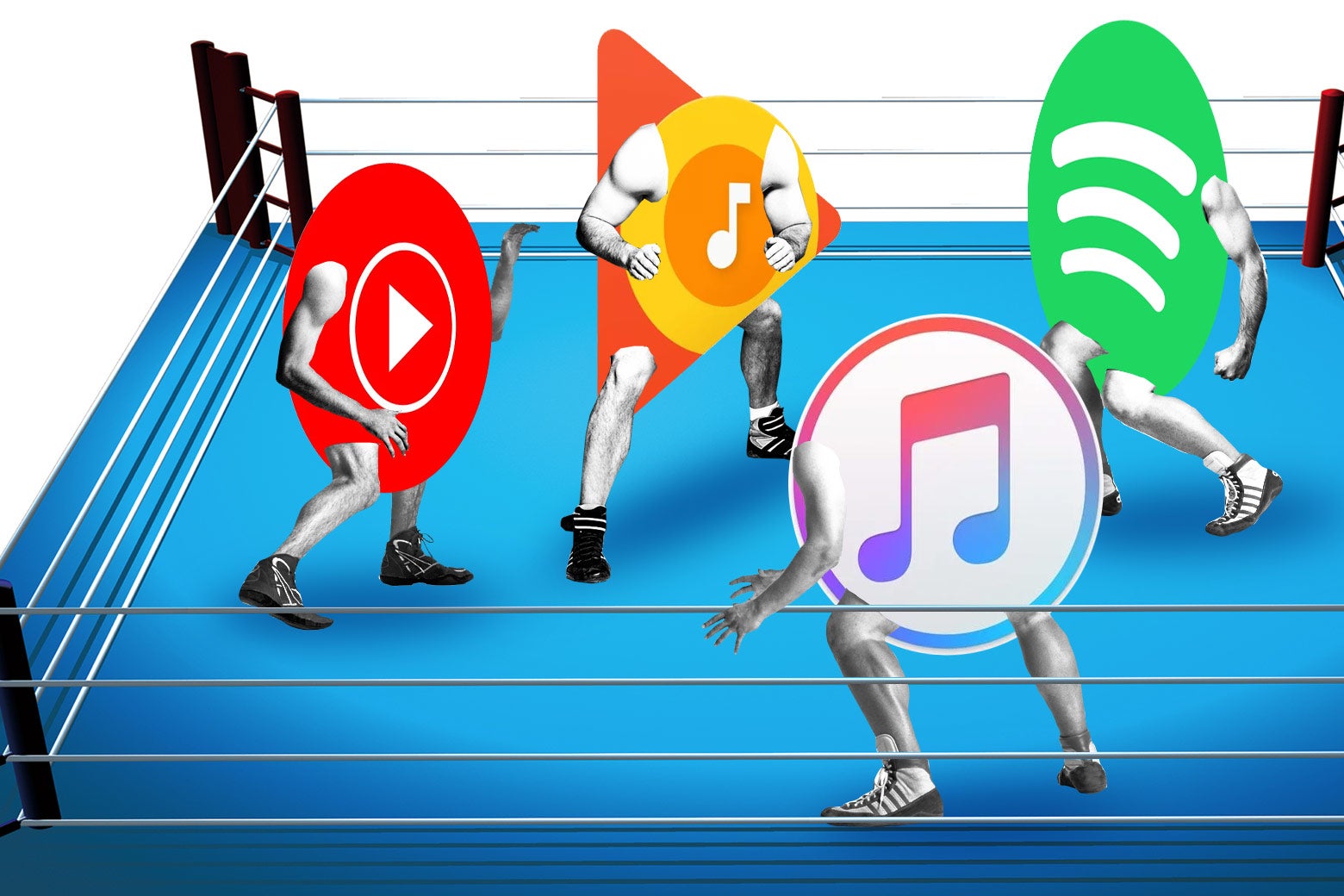Big companies are doubling down on music streaming. Spotify released major updates to its free app this week in a bid to entice new users into its premium service. Apple wants Apple Music to be the streamer of choice for iOS users—it’s the only native streaming option for its HomePod smart speaker. And now Google is getting more serious about its service, too. The company reportedly plans to fold its current music streaming platform, Google Play Music, into the upcoming launch of YouTube Remix. It’s a wise move from Google, especially considering its current fragmented and redundant app offerings in other areas.
Take, for example, email. On Wednesday, Google introduced a significant redesign of its Gmail app that adds a suite of security and productivity features, including smart replies, a “confidential mode” for messages that expire after a certain date, and the option to snooze emails until a more convenient time. If some of these features sound familiar, it’s because Google already has a productivity-focused email app with them: Inbox. For users of the latter, Google’s Gmail announcements raised a number of questions: What does this mean for Inbox? Will it be getting an update of its own in the near future? Or will it eventually get folded into Gmail?
The concerns are valid, particularly considering the reported fate of Google Play Music. A source with Android News website Droid Life reports that when Google launches its YouTube-based music service, it will replace Google Play Music. Originally rumored to debut in March, YouTube Remix (or simply YouTube Music, as some reports suggest “Remix” is merely the product’s code name) is Google’s upcoming attempt to combat Spotify and Apple Music in the streaming music space. Google Play has never managed to gain foothold as a legitimate contender, but YouTube continues to be successful both as a video streamer and as an on-demand music platform. It also makes sense because the line between YouTube and Google Play Music has already blurred: A Google Play Music subscription also includes access to YouTube Red, YouTube’s ad-free video service, and YouTube Music, a standalone mobile app for streaming music videos. Users will reportedly be forced off of Google Play Music and onto the new YouTube Music by the year’s end.
A YouTube spokesperson told Droid Life, “We’ve previously announced the combination of the YouTube Music and Google Play product teams—music is very important to Google so it’s critical we have one offering that meets the needs of consumers and artists. Nothing will change for users today and we’ll provide plenty of notice before any changes are made.” (Google issued essentially the same comment when it confirmed news of the restructuring last February.)
Google’s move here makes sense: YouTube has far stronger brand recognition than Google Play Music. In a battle against Spotify and Apple Music—and a fight for whatever meager profits can be eked from the space—Google needs to focus its efforts on one product best suited to challenge them.
In combining its Music streaming product teams and reportedly uniting those products under a single service, Google is showing some maturity. It didn’t just start and abandon an app with little forethought as to the long-term game plan (cough, Allo). It looked critically at the streaming music space, its current offerings, and what it needed to do to compete. Google could be well-served to follow a similar example with some of its other app offerings. Uniting users under a single, logical brand—like YouTube, for both its streaming video and music endeavors—is a better long-term approach than dividing users among confusingly synonymous apps. And when it comes to streaming music, a strong brand is absolutely necessary if Google hopes to stand a chance against big names like Spotify and Apple.
